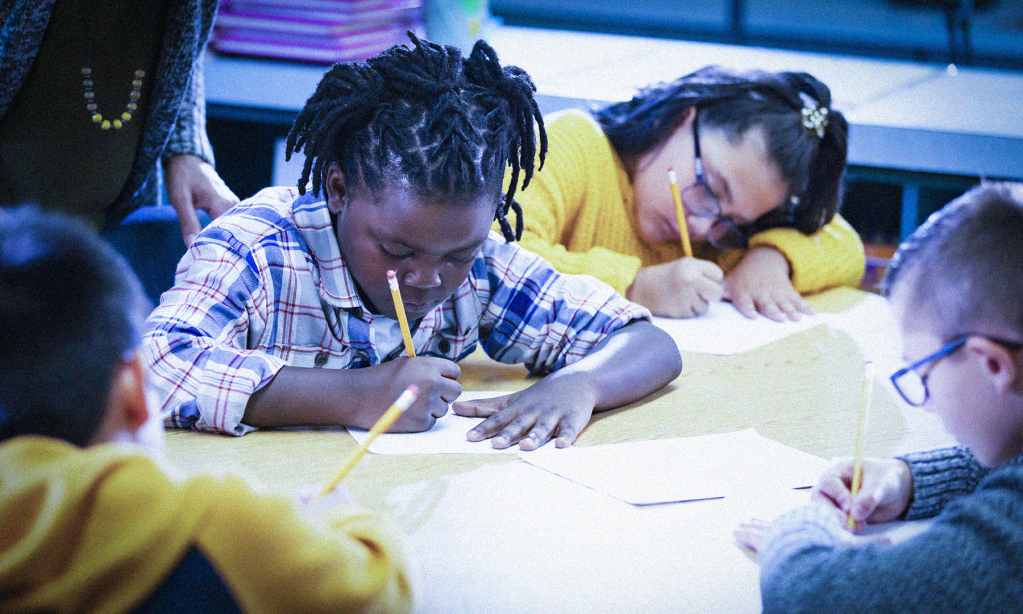Five years ago, after the OECD released international PISA rankings, the BBC dubbed Canada an “education superpower”. According to the OECD’s education director, in spite of provincial and territorial variation, there was a commitment in Canada to “an equal chance in school” that overcame socioeconomic differences.
The aspirational claims of equity within the Canadian system, even in reference to the apparently high-water mark of 2017, will strike many as wildly overstated.
Fundraising for basic classroom supplies. Shockingly high deferred maintenance costs in school boards across the country. Inadequate supports for vulnerable students. A shortage of school librarians. Long commutes for students in rural communities. Crowded classrooms. And the continued “school choice” narrative.
In spite of this backdrop—and vocal opposition to austerity regimes that continued to prioritize tax cuts over social program enhancement—the BBC article was shared and referenced widely, and there was much back patting (with perhaps a smidge of cognitive dissonance).
Ironically, the fallout from the underfunding of what should be a robust, high quality and accessible public system has become a rallying point for those promoting more defunding, and more support for privatized options like vouchers and charter schools. Schools are failing in their responsibility (to the economy they mean, but to children they claim), so let the market decide.
Cuts to public education—and to social infrastructure more generally—hurt us all, especially the most vulnerable. But markets have a propensity to favour those who already know their way around Bay Street without a map.
It is absolutely true that well-funded, accessible, high-quality public education is a key platform from which to fight systemic inequality. And when we commit to programs that decrease inequality, while providing people with the tools to be critical of policy and political decisions, and the space to develop empathy, we work towards a more just, compassionate, enriched—in every sense of the word—society for everyone.
But underfunded, multi-tiered public education reinforces precisely the opposite. And what makes it worse is the betrayal. The public institutions that our political and policy leaders proudly fete on the international stage are, at home, simultaneously treated as overfunded and substandard.
There’s a tremendous danger in the implication that it’s public education’s responsibility to eradicate inequality—or, conversely, that the very existence of inequality is evidence that public schools have failed.
Some provinces even make the case, implicitly or explicitly, that it’s worth tempting (maybe bribing) parents with public money so their children can “escape” to greener private pastures.
As the market mindset has taken hold, public schools have internalized a more “entrepreneurial” mindset to attract the “right kind” of students who “appreciate” selective boutique programs and whose parents can navigate application processes and afford the additional fees that may be incurred. A private school-lite experience within the public system.
This is the point at which, as our friends at IRIS have demonstrated, an inadequately supported public education system reinforces socioeconomic disparities rather than providing a basis from which to address and overcome inequality.
There’s a tremendous danger in the implication that it’s public education’s responsibility to eradicate inequality—or, conversely, that the very existence of inequality is evidence that public schools have failed.
There’s also a danger, exacerbated by the “choice” mantra, in the implication that education is an individualized responsibility—that those who bear the burden of systemic inequality are to blame because they didn’t pursue an education. Or enough education. Or the ‘right kind of’ education. Or that certain parents don’t ‘value’ or ‘take an interest in’ or ‘encourage’ their child’s education (with not so subtle classist and racist implications). This has particular relevance as multi-tiered approaches and boutique-ified public schools become even more commonplace.
When it comes to our apparent inability to address systemic inequality, it’s not schools that are letting us down. And it’s not about ‘some people’ making better choices about which boutique program to send their child to.
It’s the decision-makers who have deliberately chosen to neglect those public programs that are key to making communities more compassionate, equitable and sustainable places to live.







